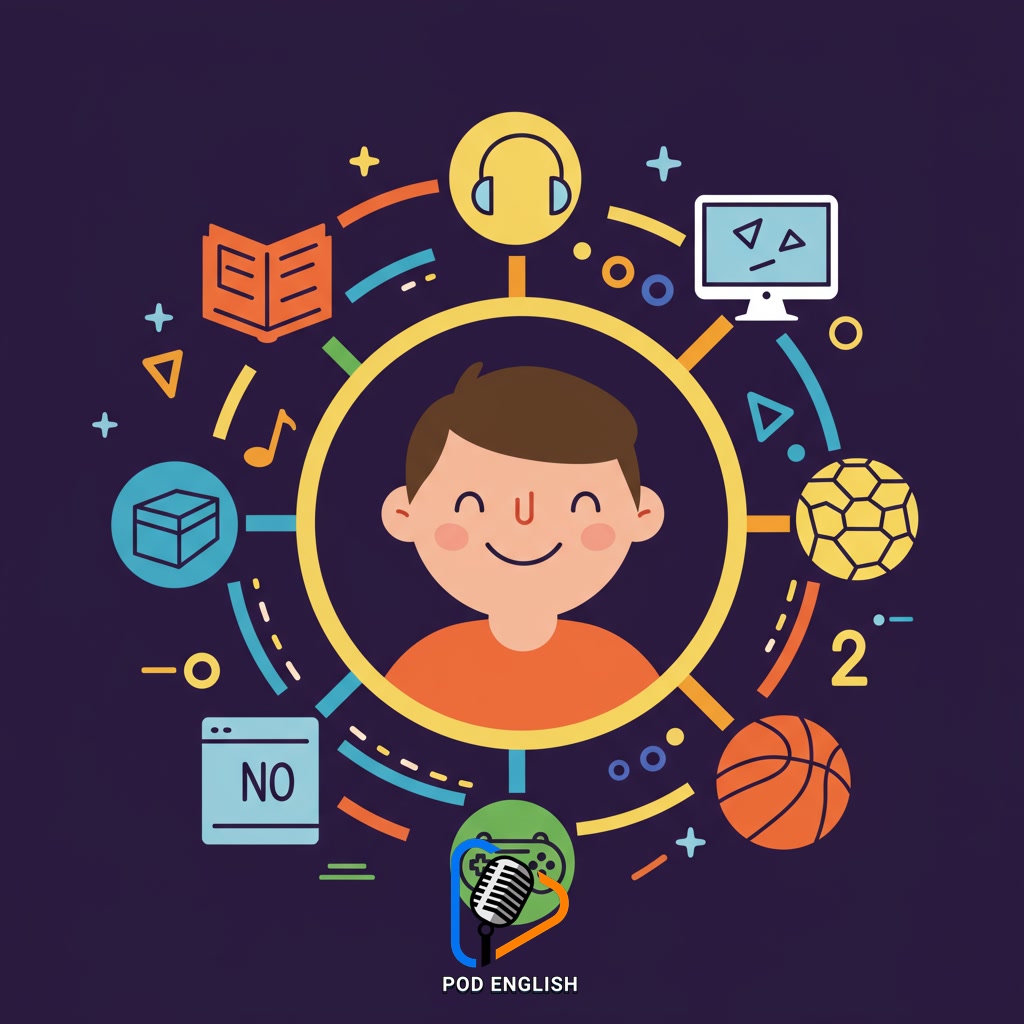Learn English
How to Make English Learning Fun and Engaging

This content explores effective strategies to transform the process of acquiring English skills into an enjoyable and captivating experience. It provides practical methods for incorporating engaging activities that maintain learner motivation. The aim is to demonstrate how creativity and interaction can significantly enhance the English acquisition journey. By adopting these approaches, learners can overcome common challenges and achieve fluency through positive engagement.
Table of Contents
- Section 1: Make Learning Relevant: Connect English to Your Interests
- Section 2: Dive into Entertainment: Learn with Movies, Music, and Podcasts
- Section 3: Turn Study into Play: Gamification and Interactive Tools
- Section 4: Learn Socially: Connect with Others
- Section 5: Track Your Growth: Set Goals and Celebrate Achievements
- Section 6: Learn from Every Step: Embrace Mistakes
Section 1: Make Learning Relevant: Connect English to Your Interests
Learning English becomes significantly more enjoyable and effective when you intentionally connect it to your personal interests and passions. Instead of viewing English solely as a subject to study, think about the hobbies, topics, or activities you already love. Do you enjoy watching movies or TV shows? Try watching them in English, perhaps starting with subtitles and gradually moving to English subtitles or none. Are you passionate about music? Find English song lyrics, follow English-speaking artists, or read interviews. If you’re into sports, read news articles or listen to commentary in English about your favorite teams or athletes. Love cooking, gaming, or technology? Explore English websites, forums, or videos related to these topics. By integrating English into activities you already find engaging, you create a natural, motivating context for learning. This approach makes the process feel less like work and more like a natural extension of your life, boosting your motivation and making new vocabulary and phrases more memorable because they are tied to meaningful experiences.

Make Learning Relevant: Connect English to Your Interests
Section 2: Dive into Entertainment: Learn with Movies, Music, and Podcasts
Building on the idea of connecting English learning to your passions, dive into the world of entertainment. Movies, music, and podcasts offer immersive and enjoyable ways to improve your skills naturally. Watching films or TV shows allows you to hear natural dialogue, understand cultural nuances, and pick up new vocabulary from context. Listening to music or podcasts helps train your ear to different accents and rhythms of speech, while also exposing you to contemporary language and expressions. Start with content you genuinely enjoy, perhaps with subtitles initially, and gradually challenge yourself. This approach makes learning feel less like studying and more like a rewarding leisure activity, keeping you motivated and engaged.

Dive into Entertainment: Learn with Movies, Music, and Podcasts
Section 3: Turn Study into Play: Gamification and Interactive Tools
Building on the idea of making learning enjoyable, let’s explore how turning study into play can transform English acquisition. Gamification involves applying game-like elements such as points, badges, leaderboards, and levels to learning tasks. This approach taps into our natural desire for achievement and competition, making practice feel less like a chore and more like a challenge to conquer. Coupled with interactive tools like language learning apps, online quizzes, digital flashcards, and educational games, learners can actively participate rather than passively absorb information. These tools often provide instant feedback and adaptive challenges, keeping motivation high and making the learning process dynamic and engaging. By integrating these playful methods, mastering English vocabulary, grammar, and pronunciation becomes an exciting journey with clear milestones and rewards.

Turn Study into Play: Gamification and Interactive Tools
Section 4: Learn Socially: Connect with Others
Building on the idea of making learning enjoyable, connecting with others adds a powerful social dimension. Learning English doesn’t have to be a solitary activity; interacting with fellow learners or native speakers makes practice more dynamic and motivating. Find language exchange partners online or locally, join English conversation clubs, or participate in online forums and communities. These social connections provide opportunities to practice speaking and listening in real-world contexts, receive feedback, and learn about different cultures. Sharing experiences and challenges with others can also boost confidence and make the learning journey feel less daunting and more like a shared adventure. This collaborative approach fosters a supportive environment where learners can grow together.

Section 5: Track Your Growth: Set Goals and Celebrate Achievements
Building on connecting with others, keeping track of your own progress is equally vital for staying motivated and making English learning fun. Setting clear, achievable goals gives you direction and purpose. These goals don’t have to be massive; they can be as simple as learning five new vocabulary words this week or practicing speaking for ten minutes daily. When you reach a goal, no matter how small, take a moment to acknowledge your achievement. Celebrating these milestones, perhaps by treating yourself or sharing your success with a learning partner, creates positive reinforcement. Seeing how far you’ve come builds confidence and makes the learning journey feel rewarding, encouraging you to continue and tackle your next steps with enthusiasm.

Track Your Growth: Set Goals and Celebrate Achievements
Section 6: Learn from Every Step: Embrace Mistakes
Building on connecting with others and tracking your progress, embracing mistakes is perhaps one of the most liberating and fun aspects of learning English. Don’t view errors as failures; instead, see them as invaluable feedback points on your learning journey. Every time you use a wrong word, mispronounce something, or make a grammatical slip, you gain a clearer understanding of what you need to practice. A fear of making mistakes can paralyze your speaking and writing, making the process stressful rather than enjoyable. Cultivating a mindset that welcomes mistakes allows you to experiment, take risks, and ultimately learn faster and more effectively. Think of each error as a stepping stone pushing you forward.














